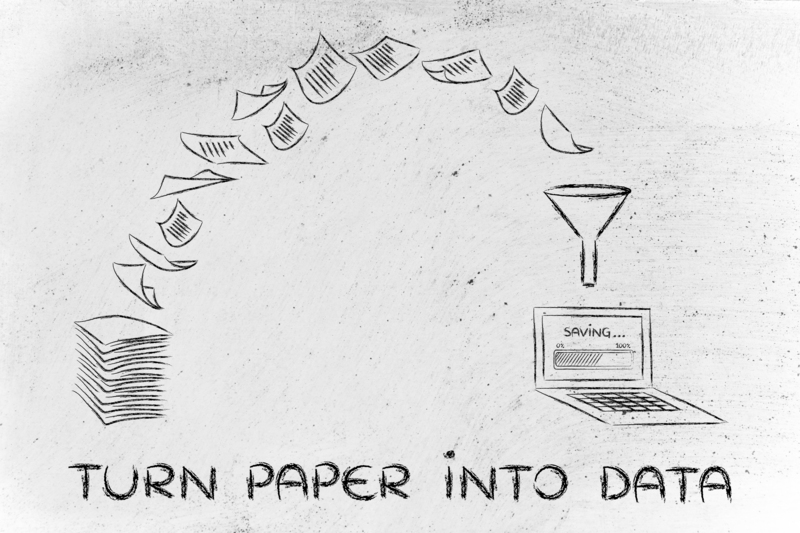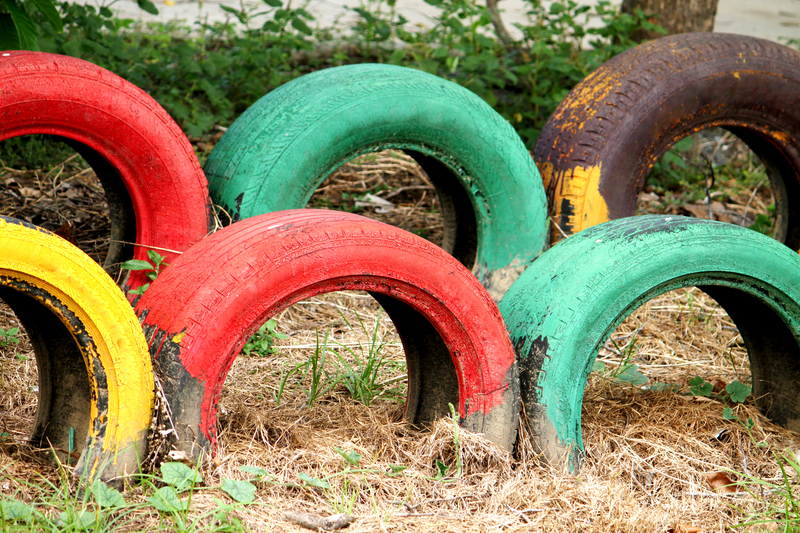How to Keep More Cash While Getting Rid of Bulky Waste Items
Bulky waste items--like old furniture, appliances, mattresses, or even yard debris--often take up valuable space in your home or garage. Getting rid of them can be a serious headache, especially when you're also trying to save money. Surprisingly, there are strategic ways to dispose of these large unwanted items without breaking the bank. Even better, you might even make some extra cash in the process!
In this comprehensive guide, you'll discover budget-friendly, smart, and sustainable ways to get rid of bulky waste items, along with practical tips to keep more cash in your pocket.
Understanding Bulky Waste: What Qualifies?
Before we dive into wallet-saving solutions, let's clarify what actually counts as "bulky waste". Municipalities typically define bulky waste as items that are too large or heavy for regular curbside collection. Common examples include:
- Old sofas, armchairs, and recliners
- Beds, mattresses, and box springs
- Large appliances (refrigerators, washing machines, dryers)
- Carpets and rugs
- Lawnmowers or outdoor play sets
- Broken desks, bookshelves, or entertainment units
- Large electronics or televisions
Disposing of these items improperly could result in fines or additional waste management fees. But with a little strategy, you can minimize costs or even get paid while decluttering your space!

Why Bulky Waste Disposal Can Be Expensive
Many people are surprised by the costs associated with bulky waste disposal. Municipal bulk pick-up programs may charge per item, or limit how many pieces they'll take each year. Private junk removal services can add up quickly, especially if you have several items or live in a remote area.
The good news? With a creative approach, it's possible to save money--or even make money--while saying goodbye to cumbersome junk. Here's how you can keep as much cash as possible on your next bulky waste purge.
Top Strategies to Save or Earn Money While Clearing Bulky Waste
1. Sell What You Can
One of the best ways to offset your disposal costs is to sell your unwanted items whenever possible. Thanks to the Internet and local selling apps, finding buyers for secondhand goods has never been easier. Bulky waste like:
- Used furniture (tables, chairs, sofas)
- Appliances in working order
- Antique pieces or collectables
- Leftover renovation materials
can usually net you a quick cash payout, especially if they're in decent condition. Try these platforms:
- Facebook Marketplace: Free and hyper-local. Listings are quick to create, with no seller fees.
- Craigslist: Still popular for bulky items, especially in urban areas.
- OfferUp & Letgo: Mobile apps designed for local selling.
- eBay: Good for specialty or valuable pieces (though shipping can kill your profits on truly large items).
- Yard Sales: Hold a garage sale and get rid of multiple things at once.
Tip: Include clear photos and honest descriptions for quicker sales. Be up front about any damage or wear.
2. Donate for Tax Deductions
Even if your bulky waste isn't selling, donating it to a charity can provide financial advantages. Many non-profits will pick up large items free of charge and leave you with a tax-deductible receipt.
Popular charities and organizations that accept bulky donations include:
- Goodwill
- Salvation Army
- Habitat for Humanity ReStores
- Local shelters or community centers
Be sure to request a tax deduction receipt and keep it for your tax records. Even if you can't sell your old sofa, you might score a nice deduction and skip disposal fees.
3. Use Local Bulk Pick-Up Services
Many municipalities offer free or low-cost bulky item pick-up--but with strict limits. Each city has its own rules about how often and how much you can put out, so check your public works or sanitation department website.
- Schedule your items during free collection periods to avoid fees.
- Combine disposal runs with neighbors or friends to maximize each pickup.
- Follow size and weight restrictions to prevent fines.
Pro Tip: Some localities allow you to pre-schedule pickups for free! Don't assume you have to pay for private junk removal until you check with your city first.
4. Repurpose or Upcycle Bulky items
If you're feeling crafty, upcycling can turn "worthless junk" into treasures--or hot sellers! With a little creativity, broken furniture and old doors can become:
- Garden benches or outdoor planters
- Chic, rustic shelving units
- Pet beds or playhouses
- Cottage-core decor (Pinterest is your friend!)
Share your creations locally or sell them online. You'll keep items out of landfills and possibly make even more cash than selling them as-is.
5. Recycle for Rewards
For certain types of bulky waste--especially appliances and electronics--recycling isn't just the eco-friendly choice. Many communities and retailers offer rebates, trade-ins, or cash incentives for recycling:
- Old refrigerators and freezers
- TVs, monitors, and computers
- HVAC components
- Scrap metal (from lawnmowers or exercise equipment)
Check with your local utility or recycling center to see if they'll pay for scrap metal or energy-inefficient appliances. Major retailers like Best Buy and Home Depot occasionally offer credit or discounts for responsible recycling during appliance events.
How to Organize an Effective, Cost-Saving Bulky Waste Removal Plan
To minimize costs and increase your chances of earning cash, it's important to approach your clean-out systematically:
1. Take Inventory
List every bulky item you want to get rid of. Note its condition: is it gently used, broken, or out of date? This will help you decide whether to sell, donate, recycle, or trash it.
2. Research Your Options
Check municipal websites to see about free pickups, recycling events, or specific rules for your region. Identify local resale and donation opportunities as well.
3. Sort by Disposal Method
- Sellable: In-demand furniture, appliances, specialty items.
- Donatable: Gently used sofas, tables, and beds (check for stains or damage).
- Recyclable: Electronics, metal frames, yard tools.
- Trash Only: Broken, infested, or unsalvageable items.
4. Arrange Pickups or Drop-offs
For each category, reach out to the appropriate resource to arrange logistics. Group similar items when possible, and always confirm requirements in advance to avoid surprise fees.
Pro Tip: If moving heavy items on your own is a challenge, ask local haulers for "curbside only" discounted rates, or see if a charity will pick up directly from inside your home.
How to Avoid Common Bulky Waste Mistakes That Cost Money
- Don't dump illegally. Fines for illegal dumping can be hundreds or even thousands of dollars--always use approved methods.
- Skip "convenience fees." Some haulers charge extra for tight hallways or stairs. Clear a path ahead of time, and disassemble furniture where possible.
- Don't forget to check eligibility for rebates before disposing of appliances and electronics.
- Be wary of "free junk removal" scams. Only use verified, reputable companies and confirm costs in writing.
Extra Ways to Save or Earn When Disposing of Bulky Waste
1. Partner with Your Neighborhood
Look for neighborhood clean-up days--cities will often waive hefty disposal fees for residents who participate. Team up with others to split transport costs, or use community dumpsters when available.
2. Leverage Social Media and Online Classifieds
If an item is heavy but still usable, list it "free for pickup" online. You'd be amazed by how quickly things like old couches, bikes, or doors disappear when listed for free. The real win: your junk is gone, and you didn't pay a dime.
3. Rent or Borrow a Truck
If multiple runs to the landfill are necessary, consider splitting the cost of a rental truck with friends or neighbors to save big on transport.
4. Ask About Appliance Buyback Programs
Utility companies sometimes offer rebates for upgrading and responsibly disposing of old appliances. You could get up to $100 or more per item for refrigerators, washers, or dryers.
The Environmental Benefits of Smart Bulky Waste Disposal
Saving and earning cash isn't the only reward for responsible disposal. Every bulky item you keep out of the landfill:
- Reduces greenhouse gas emissions
- Conserves landfill space
- Supports local charities and families in need
- Contributes to a circular economy by keeping items in use longer
Choosing smarter disposal methods means you're not only saving money--you're helping the planet, too!

Frequently Asked Questions About Saving Cash When Disposing of Bulky Waste
What's the cheapest way to get rid of large items?
Always check for free municipal collection or charity pickup options first. Selling or giving away online can also eliminate disposal fees.
Can I make money from my bulky junk?
Yes! Many items like working appliances, furniture, or valuable materials (metal, antiques) can be sold locally. Scrap yards may pay for metal parts as well.
Do landfill fees apply to all bulky items?
Most transfer stations or landfills charge by item or by the load. Save money by donating or selling what you can before considering landfill as your last resort.
What about hazardous bulky waste?
Items like refrigerators (with refrigerants), TVs (with lead or mercury), and some electronics must be handled at specialized facilities--check local regulations for safe, legal disposal.
Conclusion: Keep More Cash and Clear Your Space Smarter!
Getting rid of bulky waste items doesn't have to drain your wallet. By selling, donating, recycling, and partnering with your local government or neighbors, you can:
- Reduce or eliminate disposal costs
- Put cash back in your pocket
- Help your community and the environment
Decluttering your living space couldn't be more rewarding--financially and ethically! Remember, a little planning goes a long way. Start today by taking inventory of what you want to remove, researching your best options, and choosing the plan that maximizes both your cash savings and impact.
```